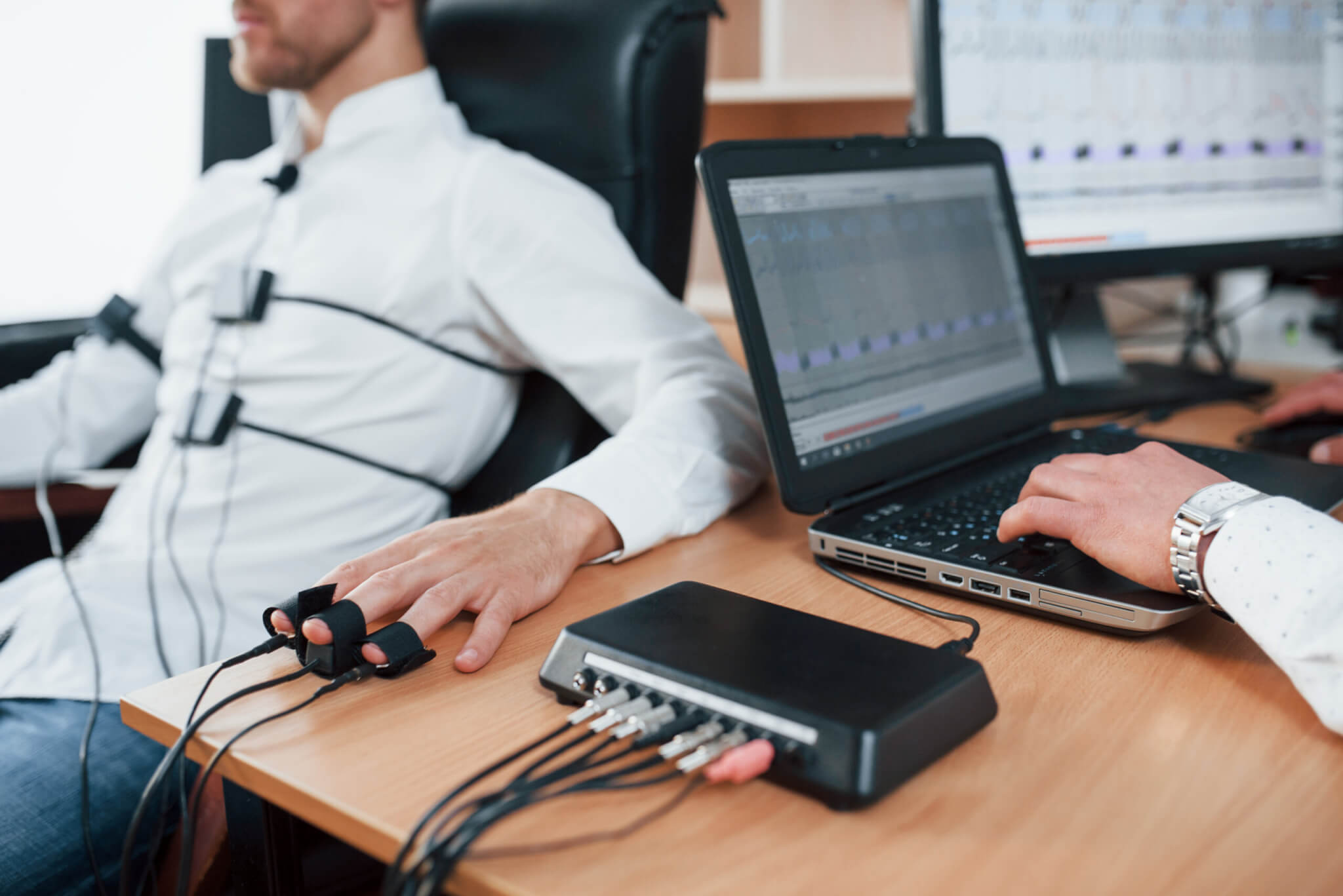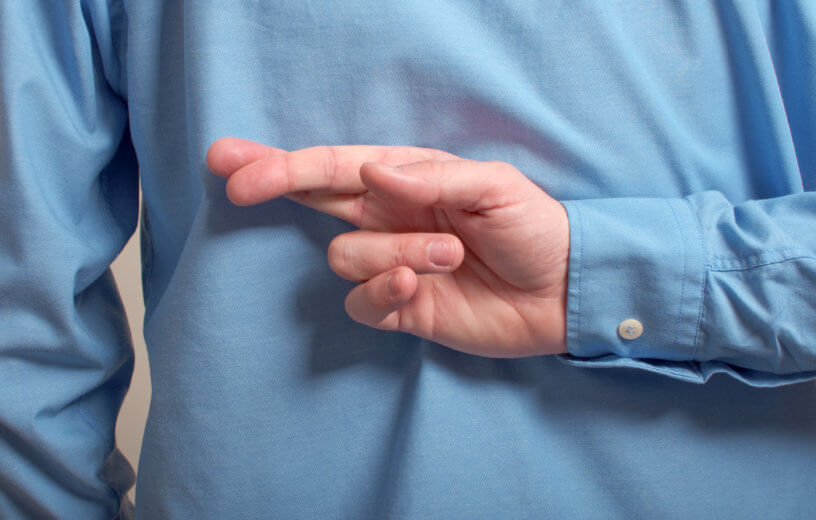Are you looking to become an expert at detecting lies? If so, knowing the best ways to tell if someone is lying is crucial. While there are various methods for being a deception detective, some are more reliable than others. Whether you want to catch someone in a little fib or a full-blown scandal, these methods will give you a few clues.
But what is lying? It is an act of deliberately deceiving others by conveying false information. It involves intentionally making false statements, withholding the truth, or giving a distorted version of the truth. The practice of lying can be done for a variety of reasons, such as self-gain, to protect oneself or someone else, to avoid punishment, or to gain power over others.
Interestingly, one recent survey shows that the average person tells four lies every day. Conversely, the participants also feel they’re told about six lies daily from other people. The study also reveals that 53 percent of Americans believe they’re good at spotting when others are lying to them, while just eight percent think they’re poor at it.
Some even twist the truth about good things, like receiving money. Researchers of a recent study looked at several experiments which test how people handle situations where they gain a financial advantage over others. Several people chose to lie about their good fortune because telling the truth could make them appear selfish or dishonest.
Lying can take many forms, ranging from simple, innocent falsehoods to complex and calculated deceptions. It can be done verbally or through body language, facial expressions, or other non-verbal cues. When people lie, it can lead to mistrust, hurt feelings, and damaged relationships. In extreme cases, like cheating on your partner, some may wonder the motivation to do something so sneaky and hurtful. A recent study examined traits found in those who cheat which included anger, sexual desire, esteem and many others varying by situation.
Detecting lies is a difficult and complex task. It often involves looking for subtle clues in a person’s behavior or speech patterns that may indicate that they are not telling the truth. There are a number of stereotypical giveaways people usually look out for when it comes to suspicious people based on body language. However, a new study by researchers at the University of Edinburgh finds that the typical clues we keep an eye out for and associate with liars are actually produced much more often when someone is telling the truth. That being said, it may be harder than you think to catch someone sneaky.
We’re not lying, though. StudyFinds has conducted research on your behalf, examining reviews and ratings from 10 reputable websites that specialize in this area. By identifying the most highly recommended products and techniques across these sites, we have compiled a list of the best ways to tell if someone is lying. If you have any recommendations of your own, we welcome you to share them in the comments section below!
The List: Best Ways To Tell If Someone Is Lying, Per Experts
1. The Polygraph Test
You likely don’t have one of these machines at your disposal, but if we’re talking about the best ways to tell if someone is lying, the polygraph is the gold standard. Polygraph tests are a popular method used to identify deception and measure physiological responses. They begin with measuring your response to questions that are sure to be true like your name and birthday and use that as a baseline to compare to other question’s answers. According to Psychology Today, “this device measures blood pressure, pulse, respiration, and skin conductivity while the subject answers a series of questions.”

The machine focuses on the outward effects certain questions have on your body. TruthFinder explains “that the machine records physical responses to these questions to determine if the subject is telling the truth.”
Furthermore, National Geographic states that “the polygraph test is the most commonly used lie detection tool and measures blood pressure, pulse, respiration, and skin conductivity to identify deception.” Things like a raise in heart rate or changes in breathing are indicators that someone could be lying.
2. Eye-Tracking Tests
Eye-tracking tests have become a popular method for detecting deception by measuring eye movements. According to Simply Psychology, “these tests gauge the direction and speed of eye movements while answering questions to identify signs of deception.”

National Geographic explains what’s behind this method: “These tests are based on the theory that individuals tend to move their eyes in a particular direction when they are lying.”
In addition, Medical News Today highlights “that eye-tracking tests also measure pupil dilation and blink rate to determine the truthfulness of a subject.” After some practice, you may be able to easily tell when someone is lying to you based on where they are looking or if they are making eye contact.
3. Body Language
The body language of lying is an intricate and complex topic that encompasses several nonverbal cues indicating deception, such as facial expressions, gestures, and postures. How a person moves or using their hands while talking provides a comprehensive look at the various body language signals that indicate a person is lying.

According to Psychology Today, liars often avoid eye contact, have shifty eyes, and play with their hands. LifeHacker highlights the importance of body language as an essential aspect of communication and suggests that the eyes and face can be particularly revealing overall in comparison to the rest of the body.
Finally, Inc. emphasizes that “liars may avoid eye contact, touch their faces, or make forced and unnatural gestures, all of which can indicate deception.” Be sure to watch someone carefully if you suspect they are avoiding the truth, it could be the honesty you need.
4. Voice Stress Analysis
Voice stress analysis is a method that measures changes in a person’s vocal patterns to identify signs of worry or unease. According to Simply Psychology these changes can indicate that a person is lying.
How does it work? APA explains that “a computer is used to measure the vocal patterns and detect any signs of deception.”
Lies don’t just alter how you present yourself through body language, but also how you sound. LifeHacker highlights that “voice stress analysis measures changes in vocal pitch, volume, and speed to detect deception.”
5. Questioning Techniques
Questioning techniques can be useful and there are various methods that can be used for this purpose. Nothing a little playful interrogation can’t do! According to Frontiers, “following up on answers or asking questions in a different order can be helpful in determining if someone is lying.”
You’ll want to disguise the same question by rewording it. This is effective in tripping someone up on their story and can reveal a lot. The APA suggests that “open-ended questions and repeating questions in different ways can be effective in detecting deception.”
It might feel forced to keep berating someone with questions, but it can be the key to uncovering the truth. Liars are most likely already nervous, so play into that by seeing if they have their story straight. NeuroScience emphasizes “the importance of focusing on details and asking probing questions to detect when someone is lying.”
You might also be interested in:
- Best Ways to Get Rid of Mice
- Best Ways to Naturally Lower Blood Pressure
- Best Ways to Whiten Your Teeth
- Best Ways to Lower Cholesterol
Sources:
- Psychology Today
- TruthFinder
- National Geographic
- Medical News Today
- Simply Psychology
- APA
- LifeHacker
- Inc.
- Frontiers
- NeuroScience
Note: This article was not paid for nor sponsored. StudyFinds is not connected to nor partnered with any of the brands mentioned and receives no compensation for its recommendations. This post may contain affiliate links.
